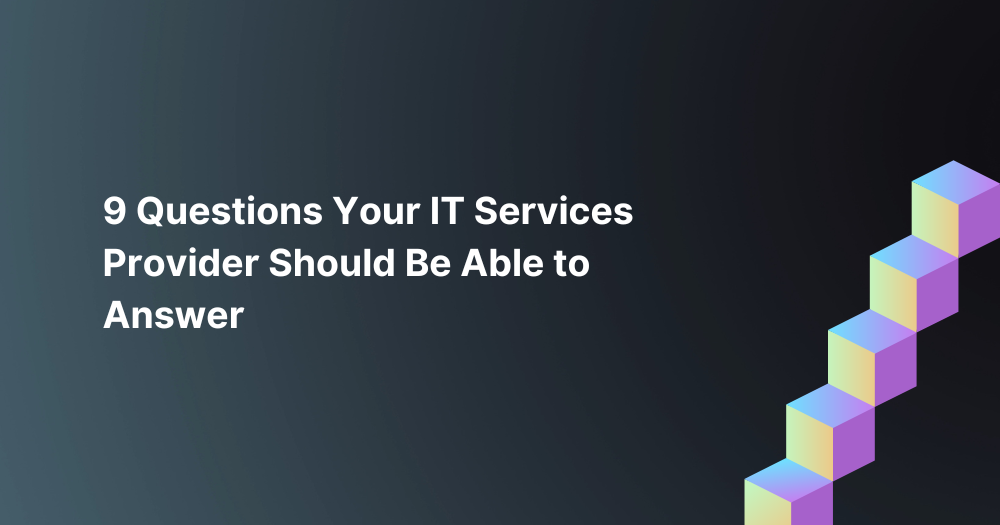
Information Technology is an ever-evolving and ever-necessary component of today’s business climate. Executing a successful IT strategy is critical to business operations, efficiency, privacy, security, and more.
When shopping for IT services, many companies are tempted to shop for a price first. Without looking closely at the capabilities the IT provider offers, you might find out the hard way that they don’t measure up.
This happened recently when we conducted a network assessment and provided a plan of action to a client. They opted to hire a cheaper IT provider to do the work, thinking they were getting a better deal. This provider started the work, knocked their network offline for a week, and then, unable to fix it, quit.
IT is complex.
From hardware to software, to management and services, it involves a lot of pieces. It’s important to make sure that the IT provider you’re considering is more than a guy who can fix your network issues.
Many businesses are left in the dark about what kind of service they should expect from their managed IT services provider.
Every provider is a bit different, but you may not realize what those differences are until it’s too late and you have a costly disaster on your hands. That’s why it’s important to know what questions you need to be asking to ensure you’re working with a reputable provider. You’ll be able to know if your provider has the following capabilities by asking these questions:
1. How do you manage our passwords?
Your provider should clearly explain where your passwords are stored and how they are secured. Ideally, access to the passwords is encrypted.
2. What’s your onboarding process?
If there isn’t an answer, buyer beware. The onboarding process is where expectations are set; it should be a routine process that is easily explained.
3. Can you explain our backup strategy?
Backups and continuity are essential to ensuring your business aren’t taken down by a thunderstorm or power failure. Find out how data is backed up and how systems restore.
4. What kind of recovery time can I expect during an outage?
Outages can happen. What’s important is the amount of time it takes to recover. The less downtime, the better for your bottom line.
5. What is your average call resolution time?
The keyword is resolution. Don’t be fooled by their “response” time. That’s how long it takes them to acknowledge your help request. Resolution time is how long it takes them to actually solve your problem.
6. Can you tell me about your cloud strategy?
Reputable IT companies should be able to explain what kind of cloud services they offer and whether or not they would be beneficial for your company. However, they shouldn’t rely on the cloud as their only IT strategy.
7. What kind of support do you offer?
Crises don’t operate on a banker’s schedule, and neither should your IT provider. Also, look for centralized support tools, such as support tickets with updates.
8. How many people work on our account?
In an ideal setting, there are at least two people who regularly manage your account, with an option to access anyone at the help desk when needed.
9. What are your policies for documentation?
How do they document important information about your network? Internal continuity is key to good service. Documentation also prevents you from ever having to start from scratch.
Whether you are working with an internal IT team or a managed IT services provider, these questions can help you uncover what the IT staff is or is not doing, and can lead you to make more informed decisions about your technology strategy. Even if you don’t think you need answers to all of these questions, this list serves as a great litmus test to see if your IT services provider is giving you the best service.
Not sure if you’re getting the right answers. Contact BlackPoint IT Services at 866.575.9512 today or let us know, and we’ll call you.